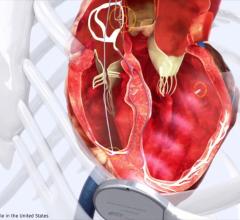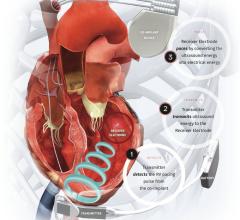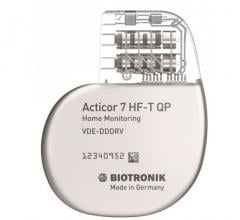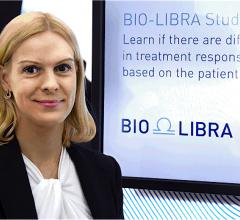May 11, 2012 — The Sorin Group is launching new implantable devices with a proprietary algorithm system as well as three leads, and releasing data showing improved patient outcomes with a novel CRT (cardiac resynchronization therapy) optimization system. The company highlighted this news during the Heart Rhythm Society 2012 meeting this week in Boston.
Data Shows Improved Outcomes, Cost
In clinical testing, Sorin Group’s CLEAR study demonstrated that at one year, 76 percent of patients using Sorin Group’s SonR system to automatically optimize a patient’s heartbeat (allowing the heart to beat in a more coordinated and synchronized way) were classified as improved. Based on these data, it is possible that more heart failure patients will respond to automatic optimization CRT than with current optimization methods. This system is the only CRT optimization system that automatically optimizes a patient’s heartbeat every week and while the patient is active, which provides real-life optimization.
U.S. Launch of News Devices
HRS 2012 marks the launch of the Paradym RF family of implantable cardioverter defibrillators (ICD) and cardiac resynchronization therapy devices (CRT-D) that allow for remote monitoring and adjustment through a proprietary algorithm system, with improved electrical performances and electrical reliability. The Paradym RF products allow heart failure patients who often undergo cardiac rehabilitation, including physical exercise, to increase their heart rates while maintaining the ability to treat heart rhythm irregularities.
FDA Approval Broadens Access to U.S. Physicians
For the first time in the United States, Tilda, Vigila and Celerity leads offer a complete package for physicians to better manage their patients’ individualized needs. Tilda pacing leads are designed for easy implantation and predictable performance. Vigila defibrillation leads feature a symmetrical lead body and thick outer insulation, and are engineered to minimize tissue in-growth. Celerity left ventricular leads are designed to facilitate access and ensure stability in targeted pacing sites, regardless of patients’ coronary venous anatomies.
For more information: www.sorin.com


 July 21, 2025
July 21, 2025 









